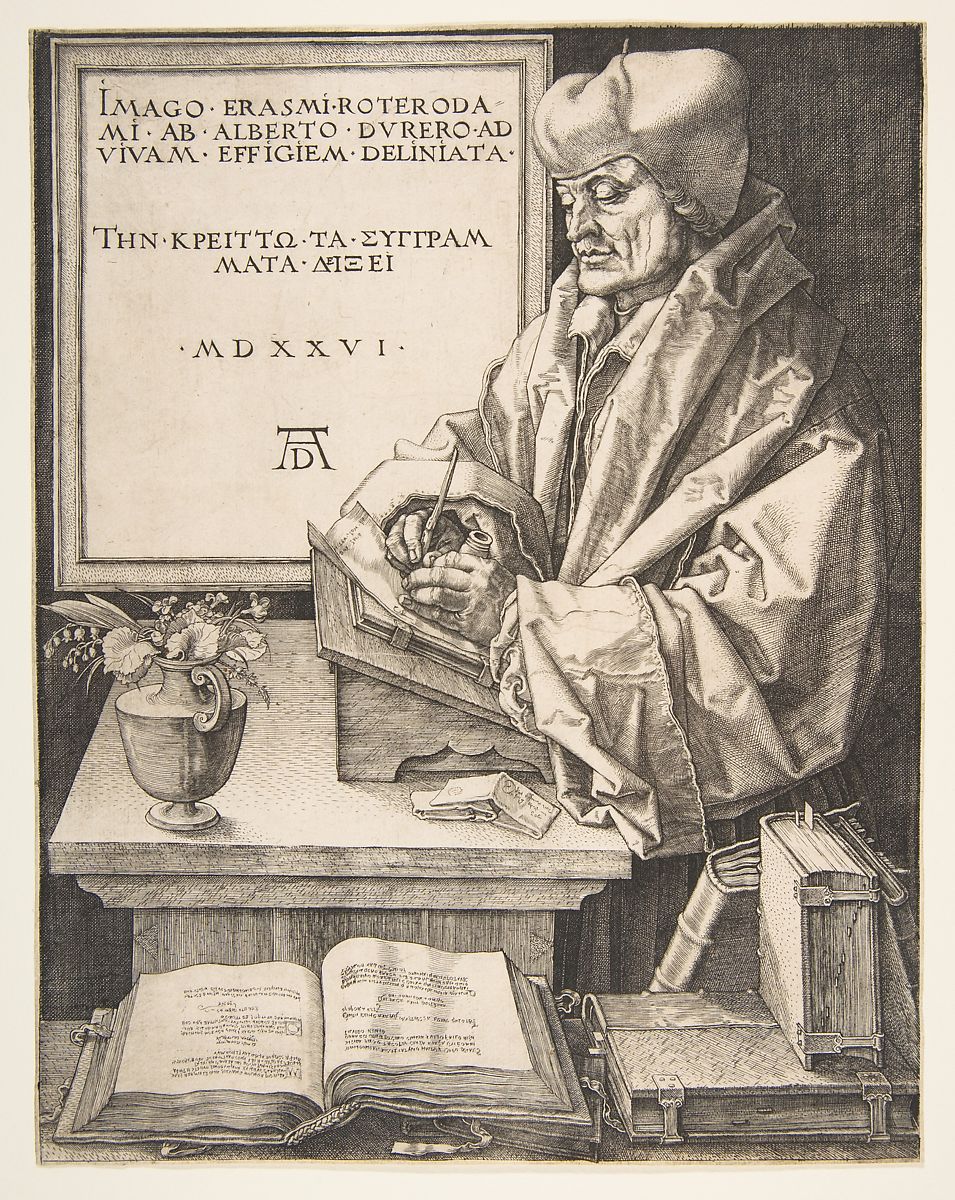Painting Techniques Through the Centuries
The medium used by an artist is often as important as the image portrayed. Explore the history of fresco, tempera, oil, pastel, and acrylic and the unique qualities each brings to a work of art.
Printmaking Techniques Through the Centuries
Have you ever wondered how a woodcut, engraving, etching or lithograph is created? Each technique offers a unique quality to a print and we’ll explore the creative genius of artists such as Durer, Rembrandt, Cassatt, and Warhol.
Albrecht Dürer, Erasmus of Rotterdam, 1526, Metropolitan Museum of Art, New York, Fletcher Fund, 1919
Great Art Patrons and the Creation of American Museums
What do Clark, Frick, Gardner, Getty, Mellon, Phillips, and Salisbury all have in common? They loved art and wanted to make it available to the public! Explore the fascinating history of the great art museums of America, large and small, and the role individuals played in their creation.
Architectural Wonders Throughout History
Explore the temples of Egypt, Greece, and Rome as well as Romanesque and Gothic cathedrals, all of which illustrate man’s creative and engineering prowess. We’ll see these achievements continued in the architecture of the 20th century.
A History of Art Through the Artist’s Self-Portrait
Self-portraits provide a special insight into the style of an artist. We’ll explore the history of European and American art from the 16th through the 21st century through the eyes of the artist’s own portrayal. From Albrecht Dürer and Michelangelo to Georgia O’Keeffe and Andy Warhol, study the faces of artists as they chose to depict themselves!
Peter Paul Rubens, Rubens, His Wife Helena Fourment, and Their Son Frans, about 1635, Metropolitan Museum of Art, New York, Gift of Mr. and Mrs. Charles Wrightsman, in honor of Sir John Pope-Hennessy, 1981
Art as Victims of War: from the Ancient Romans through World War II
For centuries, works of art have been victims of the plunder of war. We’ll explore this aspect of war from the Roman conquests through the Napoleonic Wars to the plundering under Hitler’s Third Reich and WWII. We’ll also examine restitution efforts in more recent times.
The Monuments Men – Saving Art During WWII
The Monuments Men were a group of approximately 345 men and women from fourteen nations who served in the newly created Monuments, Fine Arts, and Archives (MFAA) Section during World War II. From museum directors to art historians and artists, they all shared a common goal: to save cultural treasures from the destructiveness of war, and theft by Adolf Hitler and the Nazis.
John James Audubon and The Birds of America
Discover Audubon’s extensive studies documenting all types of American birds and his detailed illustrations that depict the birds in their natural habitats. The Birds of America is considered one of the finest ornithological works ever completed.
After John James Audubon, The Birds of America, 1840–44, Metropolitan Museum of Art, New York, Bequest of Emma Sheafer, 1974
The Impact of World Expositions in the 19th Century
19th-century world expositions focused on trade and inventions from around the world and state-of-the-art science and technology. We’ll explore the innovative accomplishments illustrated in London in 1851, New York in 1853, Philadelphia in 1876, Paris in 1889, Chicago in 1893, Brussels in 1897, and St. Louis in 1904.
Art Colonies of New England
From Old Lyme and Cos Cob in Connecticut to Ogunquit and Monhegan Island in Maine to Gloucester and Provincetown in Massachusetts, New England was a mecca for artists in the late 19th and early 20th century and continues to inspired artistic creativity.




